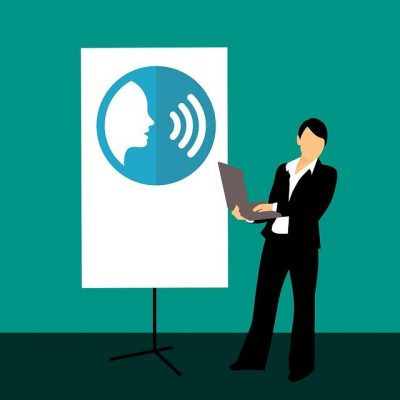
By Kayleigh Rose Evans
The day-to-day pressure of being a social worker can, at times, be so intense that it’s easy to feel like you don’t have the time to develop additional expertise. But you may be surprised at the skills you are building all the time without even realising it.
Looking back at some of my past challenging experiences, such as my first-ever social work university or job interview, at the time, I didn’t feel that I was developing any skills.
I recall one experience where nerves meant my voice disappeared completely during an interview so much so that I had to drink some water for it to resurface. I also remember being so nervous at a panel that I spoke so quickly that the people on the panel couldn’t follow what I was saying.
Despite feeling terrible at the time, these experiences were learning curves that led to some of my greatest achievements – I got into university and subsequently got a social work job!
These experiences, although challenging, helped me to develop my confidence. And though – at times – that confidence is tested, I have developed strategies to build on what I have and pay that expertise forward to other starting out in the profession.
Public speaking
One of the ways I have been able to build confidence and expertise is through public speaking.
I would never have seen myself as a public speaker but through expressing interest in furthering my knowledge around dementia. I ended up co-presenting a session on the topic with someone who is an expert in this area.

Image by mohamed Hassan from Pixabay
Then the council asked practitioners to come forward and share their practice wisdom with social work students, as part of the teaching partnership they had with a local university. I thoroughly enjoyed the experience and during that time, noticed a gap on YouTube for social work content delivered by practitioners in the sector. I didn’t feel like I had the confidence to speak publicly but found that I could develop it through training. I found a local public speaking group – one of a number of networked clubs through The Association of Speakers and learnt invaluable skills – some of which I believe are worth sharing.
who you are is the most important tool we have in social work
Thinking on your feet
One of the activities we do in the public speaking group is walking to the lectern in front of the audience and ad-libbing for two minutes on a topic. We are only told what the topic is as we are walking onto the stage, which is so nerve-wracking but the idea is for us to get used to thinking on our feet.
Often, in practice, we find ourselves having to do the same. It may be as a result of a family member ringing and asking about something unexpected. It could also be being asked to speak in a big meeting without much warning. In those situations, I have found that being able to use those transferrable skills to quickly prioritise the most important information effectively is key.
These skills have been increasingly relevant as we see significant shortages in essential care for adults with disabilities.
Keeping your cool
There are situations in my line of work where the people we support ring up and raise their frustrations or serious concerns around current care shortages. I find it difficult that you can assess someone and identify that they need services but are sometimes unable to help them because the services are just not available. Those situations can make me feel quite helpless because I know I want to be able to fix the problem but solutions are not always forthcoming.

Photo by Alexander Dummer from Pexels
So, when you are met with someone screaming at you down the phone, it can be tempting to just respond under pressure or out of frustration. However, actively listening to their underlying concerns can sometimes help you to find a way forward. Sometimes, by just giving the person the space to speak without giving them a knee-jerk response, can dissolve any heightened emotion.
Just being able to be open up to others about the emotional toll they are experiencing often leads to practitioners developing a connection with them, and sharing guidance around how to manage these situations collectively.
This is much like what I learnt in public speaking. Even the most confident people are still fearful about speaking in public but it is about finding ways to manage these uncomfortable feelings and doing it anyway.
Presenting your case
Another skill I acquired from the group was learning how to construct a longer speech. This helped me with preparing for progression interviews in social work. A recent example was when I was applying to be classed as an H2 experienced social worker and had to present a 20-minute case overview.
Developing this skill in public speaking taught me the importance writing down all my thoughts on a topic and identifying the key themes. Once these key points are refined, it is then useful to split the information into manageable chunks. I created a table in Microsoft Word to achieve this. I then practice my speech by recording my voice on my phone and listening to these clips whenever I can. This process has helped me boost my confidence to stick to timeframes, eliminate tangents that can throw you off your path and also help you acclimatise to the way your voice sounds out loud.
Now, I am mentoring first student as a practice educator, I have the opportunity to support them when preparing for interviews and share my learning.
Be yourself
My biggest takeaway from these experiences is realising that often in practice and when doing academic work, it’s about finding ways to break what initially appears to be complex into more manageable chunks.
Sometimes we can feel the weight of these massive decisions but it’s about finding ways to find the simplicity in the complexity. There has been a pattern for me that the more I try to over-read or fit too much into what I am doing, often the worse it ends up.

Photo by Pexels-Pixabay
This may not be the same for everyone but maybe what can be taken from what I have said is that it’s worth finding things you’re interested in, even if they do not appear to directly align with your social work role. Not only is this good for your well-being but it makes you a better social worker because learning and genuine interest make you vibrant and who you are is the most important tool we have in social work.
Want to read more about improving your careers journey?
Visit the following link for more Careers Zone Archives – Community Care
Visit Kayleigh Rose Evans’ YouTube for more on her social work journey



 Facebook
Facebook X
X LinkedIn
LinkedIn Instagram
Instagram
Absolutely agree with this! One of the best moves I made career-wise was to join a public speaking club which allowed me to do prepared speeches as well as the impromptu ones noted above. The prepared speeches enable you to be focused and succinct and the feedback is so helpful. The impromptu ones help you think on your feet and keep your cool, even if you don’t know much about the subject. For social workers who have to present at panels or give evidence in court, good public speaking skills are invaluable. Even if you don’t have to do that, it helps you improve your presentation in meetings by being clear, focused, and brief. It helps you be persuasive and make a good “argument”- necessary skills for all of us! The confidence public speaking clubs or classes give you cannot be measured and (hear me out) they are actually fun! Although many people fear public speaking more than death, I’m pretty sure its a lot easier than death. Be brave- you won’t regret it.